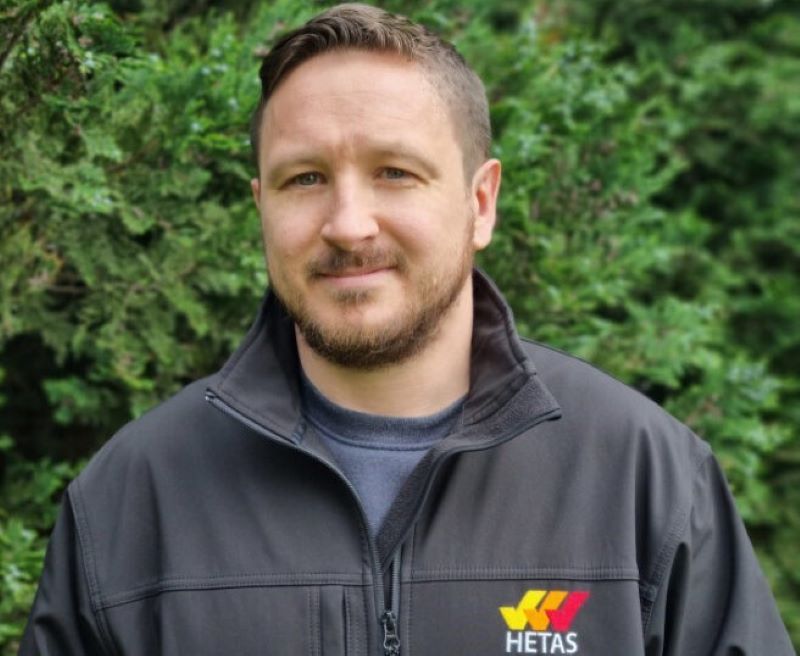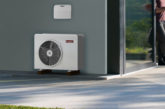
Calvin May, Head of Technical Services, HETAS, speaks to PHPI about solid fuel appliances and the crucial role installers have in advising homeowners on the selection of appropriate fuel.
Q. Many consumers are seeking solutions for heating and hot water that are low carbon. Are solid fuel appliances a sustainable heating option?
With continuing concerns around climate change and the need to transition towards cleaner energy sources, solid fuel and biomass appliances offer a viable alternative. By responsibly burning the right solid fuels on a modern, efficient appliance, the use of more renewable and sustainable fuels can be supported.
However, it’s crucial to note that not all solid fuel appliances are equal in terms of their environmental impact when in use. This is where initiatives like the Cleaner Choice Approval Scheme come into play, ensuring that listed appliances meet the most stringent standards for emissions and performance.
Through education and promotion of cleaner burning technologies, HETAS aims to encourage the correct use and adoption of solid fuel appliances as part of a sustainable heating solution.
Q. Is there a rising demand for solid fuel appliance installations, such as wood-burning stoves?
The increase in the number of installation notifications to HETAS, web traffic to the HETAS website across 2022-23 and demand for installers and sweeps signifies a surge in demand for solid fuel appliance installations, including wood-burning stoves. This heightened interest can be attributed to several factors, including the escalating costs of traditional energy sources and increased awareness of the environmentally sound solid fuel options.
Homeowners are increasingly turning to wood-burning stoves as a cost-effective and environmentally friendly way to heat their homes. This surge in demand underscores the importance of registered installers and chimney sweeps who support in educating customers about the latest regulations and best practices for fuelling and operating their appliance in an environmentally friendly way.
Q. HETAS launched the ‘Cleaner Choice’ scheme in 2022, can you explain the reasons behind this move and what the objectives of the scheme are?
The Cleaner Choice scheme was introduced to address concerns about air quality and climate change, particularly regarding domestic solid fuel and biomass burning. With solid fuel identified as a minor contributor to air pollution, initiatives like Cleaner Choice aim to encourage the use of cleaner appliances and fuels.
The Cleaner Choice Approval Scheme aims to promote the adoption of cleaner and more efficient appliances by setting higher standards for particulate emissions and overall performance. The Cleaner Choice scheme gives consumers vital transparency around the cleanest appliances to pick.
Q. Are there any regulations or standards which installers should be aware of?
Installers must adhere to various regulations and standards to ensure compliance and safety, including Building Regulations and specific requirements outlined by schemes like the Cleaner Choice Approval Scheme. Additionally, initiatives such as the Air Quality (Domestic Solid Fuels Standards) Regulations 2020 sets standards for the quality of wood and manufactured solid fuel, aiming to reduce harmful pollution from domestic burning.
Installers, retailers and chimney sweeps play a crucial role in educating customers about these regulations and guiding them towards compliant and sustainable heating solutions. By staying informed and up to date on industry standards, installers can ensure the safe and efficient installation of solid fuel appliances.
Q. What training or qualifications are required for heating engineers thinking of installing solid fuel appliances?
Heating engineers interested in installing solid fuel appliances must undergo comprehensive training, assessment and certification to ensure competency and compliance with regulations. HETAS offers specialised training courses such as the H003 and H003DS, covering a wide range of topics including fuel selection, installation best practices and safety regulations. These courses provide installers with the knowledge and skills necessary to carry out installations effectively and responsibly.
Additionally, HETAS recognises the importance of cross-skilling for registered gas and oil installers, providing pathways into solid fuel training. By investing in training and registration, heating engineers can enhance their expertise and contribute to the promotion of cleaner and safer heating practices
Q. What type of fuel should installers be encouraging homeowners to use in a stove?
Installers play a crucial role in advising homeowners on the selection of appropriate fuels for their solid fuel appliances. While there are various options available, including wood and pellets, it’s essential to prioritise cleaner and more sustainable fuel choices.
The Ready to Burn certification scheme administered by HETAS and Woodsure ensures that wood fuels meet quality standards and compliance with emissions regulations. By encouraging homeowners to choose Ready to Burn certified fuels, installers can promote cleaner burning and minimise emissions. Emphasising the importance of fuel quality and appliance efficiency allows homeowners to make environmentally responsible choices for their heating needs.
Overall, HETAS emphasises the importance of promoting cleaner and safer choices for the use of solid fuels and appliances. Through initiatives like the Cleaner Choice Approval Scheme and comprehensive training programs, HETAS strives to set the benchmark for best practices in the industry and increase the safe and environmentally responsible use of biomass and other solid fuels.













